#DevOps
Text

253 notes
·
View notes
Text

Can't bots just trust we're human without the robot dance-off? 😄
#linux#linuxfan#linuxuser#ubuntu#debian#dev#devops#webdevelopment#programmingmemes#linuxmemes#memes#cat#coding#developer#tech#ethicalhacking#computerscience#coder#security#infosec#cyber
125 notes
·
View notes
Text

#programmerhumor#linuxmemes#codinglife#devops#sysadmin#buglife#softwareengineering#bash#linux#linuxposting#git#vim#emacs#kernel#ubuntu#debian#archlinux#serverlife#cloudcomputing#programmingfails#linuxproblems#csjokes#coderlifememes#sysadminstruggles#chilean#chilensis#chileno#tumblr chilenito#valparaiso#chile fotos
31 notes
·
View notes
Text
The developers i work with are asking chatgpt questions about my infrastructure that are in our docs. Unsurprisingly they are getting bad advice for our particular setup, and are bothering my team with a bunch of questions about if the advice is right and what would happen if they ran those commands.
38 notes
·
View notes
Text

(Twitter Source, Reddit Source)

#shipposting#i thought about just posting the reddit screenshot but no you get to have a screenshot of a screenshot#age of sail#cadmus rambles#sailing#devops#i also support developers being forced to sail for product research
13 notes
·
View notes
Text
Unlock the full potential of Git and take control of your code with our concise and effective ultimate cheat sheet!
Check out daily such informative post also if you find it useful do like and share it👌 👩💻😎

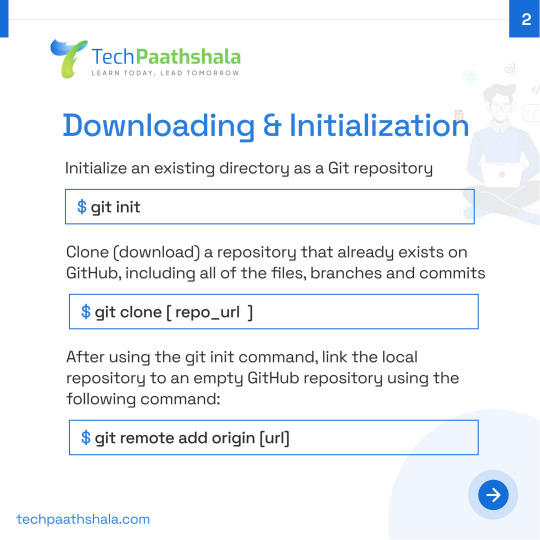





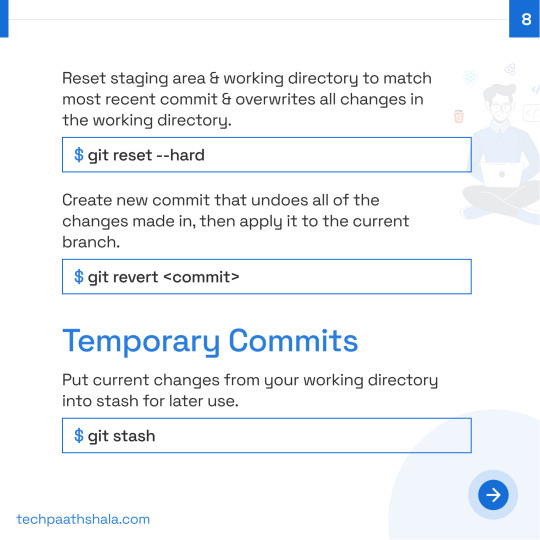


#git#github#devops#development#coding#programming#opensource#softwareengineering#codepush#versioncontrol#fullstack#fullstackdeveloper#webdevelopment#software#technology#tech#developer#javascript#python#java#computer#html#tecnologia#webdeveloper#computerscience#o#coder#css#softwaredevelopment
114 notes
·
View notes
Text
The DevOps Lifecycle: Building, Testing, and Deploying with Confidence
DevOps, a combination of "Development" and "Operations," has emerged as a game-changer in the software development landscape. It represents a comprehensive approach that fosters collaboration between development and operations teams, emphasizes automation, and cultivates a culture of continuous improvement. In this blog post, we will delve deeper into the world of DevOps, exploring its principles, practices, and how it works.

The Essence of DevOps:
DevOps is more than just a buzzword; it's a mindset that aims to break down silos and bridge the gap between traditionally isolated development and operations teams. At its core, DevOps promotes collaboration, automation, and a relentless focus on delivering high-quality software faster and more efficiently.
Collaboration: DevOps encourages close collaboration and communication between development and operations teams. By working together from the initial stages of a project, teams can align their goals, streamline processes, and reduce conflicts.
Automation: Automation is the backbone of DevOps. It involves using tools and scripts to automate repetitive tasks, such as code building, testing, and deployment. This not only speeds up development but also reduces the risk of human error.
The DevOps Lifecycle:
DevOps introduces a structured lifecycle that encompasses various stages, ensuring a seamless flow from code development to deployment and beyond.
Continuous Integration (CI): In this phase, developers frequently integrate their code into a shared repository. CI tools automatically build and test the code with every change, ensuring it remains functional and error-free.
Continuous Delivery (CD): Building on CI, CD automates the deployment process, allowing for the continuous delivery of tested code to production or staging environments. This enables rapid and reliable releases.
Monitoring and Feedback: DevOps teams continuously monitor applications and infrastructure in production. They collect feedback on system performance, user experience, and any issues that arise. This feedback loop is crucial for making improvements and responding to issues promptly.
Infrastructure as Code (IaC): IaC is a DevOps practice that involves managing infrastructure using code. It enables the automated provisioning, scaling, and configuration of infrastructure resources, ensuring consistency and reproducibility.
Version Control: Version control systems like Git are essential for tracking code changes, enabling collaboration, and ensuring code integrity.
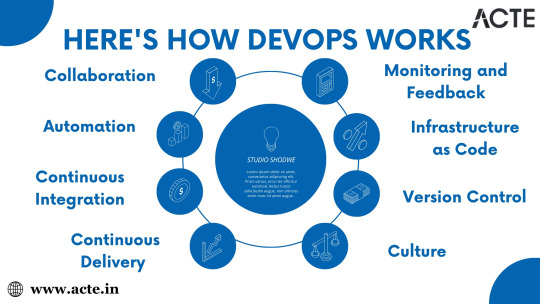
The Cultural Shift:
DevOps isn't just about tools and processes; it's also about fostering a cultural shift within an organization.
Shared Responsibility: DevOps promotes a culture of shared responsibility, where both development and operations teams take ownership of the entire software delivery process. This reduces blame-shifting and encourages problem-solving.
Accountability: DevOps encourages accountability for code quality, security, and performance. Team members are responsible for the outcomes of their work, from development to deployment.
Trust and Collaboration: Open communication and trust between teams are essential. DevOps encourages cross-functional teams to work together, breaking down traditional barriers.
DevOps is not just a trend but a transformative approach to software development and deployment. Its principles of collaboration, automation, and cultural transformation are reshaping the industry. ACTE Technologies, through its training and consulting services, plays a pivotal role in preparing professionals and organizations for success in the DevOps-driven world. Embracing DevOps and partnering with ACTE Technologies can lead to faster, more reliable software delivery and a competitive edge in today's dynamic tech landscape. Start your DevOps journey today and reap the benefits of this revolutionary approach.
16 notes
·
View notes
Text
Uncover the power of AWS with our carousel of key findings! Dive into essential AWS statistics and unlock insights you didn't know you needed.



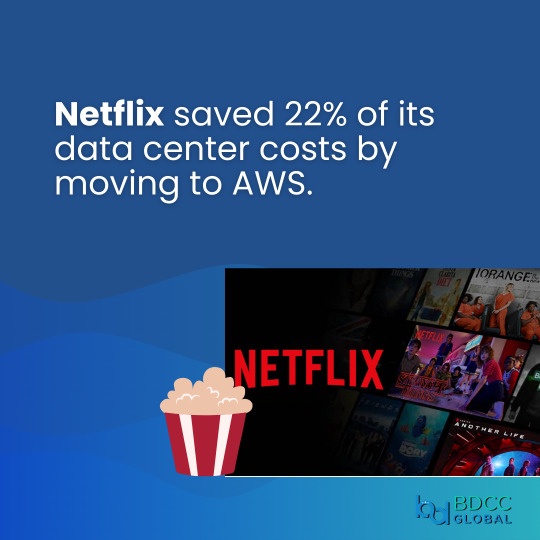

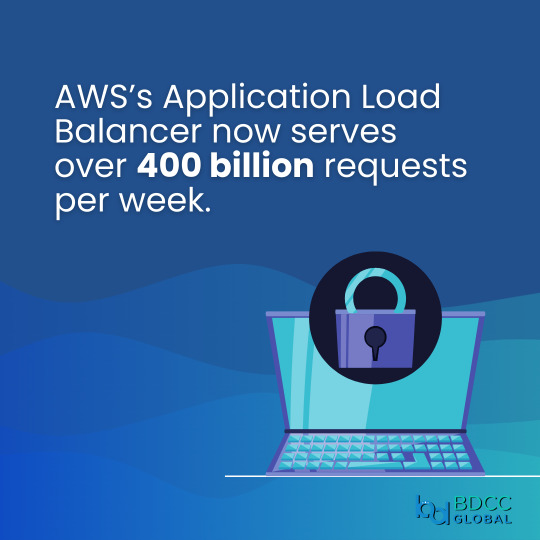
3 notes
·
View notes
Text
How to Deploy Golang Programs in Production?

Read more at: https://elvanco.com/blog/how-to-deploy-golang-programs-in-production
17 notes
·
View notes
Text

205 notes
·
View notes
Text

Windows: Hungry beast, Linux: Energy sipper!
#linux#linuxfan#linuxuser#ubuntu#debian#dev#devops#webdevelopment#programmingmemes#linuxmemes#memes#cat#coding#developer#tech#ethicalhacking#computerscience#coder#security#infosec#cyber
116 notes
·
View notes
Text


#programmerhumor#linuxmemes#codinglife#devops#sysadmin#buglife#softwareengineering#bash#linux#linuxposting#git#vim#emacs#kernel#ubuntu#debian#archlinux#serverlife#cloudcomputing#programmingfails#linuxproblems#csjokes#coderlifememes#sysadminstruggles#chilean#chilensis#chileno#tumblr chilenito#anime#love
7 notes
·
View notes
Text
Google Cloud Professional Cloud Architect Certification. Become a GCP Cloud Architect, Latest GCP Exam and Case Studies.
Google Cloud Platform is one of the fastest-growing cloud service platforms offered today that lets you run your applications and data workflows at a 'Google-sized' scale.
Google Cloud Certified Professional Cloud Architect certification is one of the most highly desired IT certifications out today. It is also one of the most challenging exams offered by any cloud vendor today. Passing this exam will take many hours of study, hands-on experience, and an understanding of a very wide range of GCP topics.
Luckily, we're here to help you out! This course is designed to be your best single resource to prepare for and pass the exam to become a certified Google Cloud Architect.
Why should do a Google Cloud Certification?
Here are few results from Google's 2020 Survey:
89% of Google Cloud certified individuals are more confident about their cloud skills
GCP Cloud Architect was the highest paying certification of 2020 (2) and 2019 (3)
More than 1 in 4 of Google Cloud certified individuals took on more responsibility or leadership roles at work
Why should you aim for Google Cloud - GCP Cloud Architect Certification?
Google Cloud Professional Cloud Architect certification helps you gain an understanding of cloud architecture and Google Cloud Platform.
As a Cloud Architect, you will learn to design, develop, and manage robust, secure, scalable, highly available, and dynamic solutions to drive business objectives.
The Google Cloud Certified - Professional Cloud Architect exam assesses your ability to:
Design and architect a GCP solution architecture
Manage and provision the GCP solution infrastructure
Design for security and compliance
Analyze and optimize technical and business processes
Manage implementations of Google Cloud architecture
Ensure solution and operations reliability
Are you ready to get started on this amazing journey to becoming a Google Cloud Architect?
So let's get started!
Who this course is for:
You want to start your Cloud Journey with Google Cloud Platform
You want to become a Google Cloud Certified Professional Cloud Architect
#googlecloud#aws#cloud#cloudcomputing#azure#google#googlepixel#technology#machinelearning#awscloud#devops#bigdata#python#coding#googlecloudplatform#cybersecurity#gcp#developer#microsoft#linux#datascience#tech#microsoftazure#programming#amazonwebservices#amazon#software#pixel#xl#azurecloud
5 notes
·
View notes
Text
AWS DevOps Careers: Navigating the Cloud-Infused Professional Landscape
In the rapidly evolving tech terrain, the confluence of AWS and DevOps has given rise to a dynamic realm, promising an array of career prospects. This all-encompassing guide unveils the diverse roles and responsibilities within AWS DevOps, offering insights into the multifaceted career avenues that await proficient individuals.

1. Crafting Cloud Solutions: The Role of an AWS DevOps Engineer
Overview: AWS DevOps Engineers serve as architects of automated software development, leveraging AWS cloud services.
Responsibilities: Dive into Infrastructure as Code (IaC), fine-tune AWS tools, and champion the principles of Continuous Integration/Continuous Deployment (CI/CD).
2. Architecting Scalable Cloud Solutions: The Realm of Cloud Architects
Overview: Cloud Architects design scalable and reliable cloud infrastructure on AWS, seamlessly aligning with DevOps principles.
Responsibilities: Collaborate to optimize AWS services, ensuring a resilient and scalable cloud environment.
3. Reliability in the Cloud: The Role of a Site Reliability Engineer (SRE)
Overview: SREs focus on ensuring system reliability, availability, and performance on AWS through vigilant monitoring and automation.
Responsibilities: Implement automation strategies, monitor AWS resources, and respond adeptly to incidents.
4. DevOps Consultancy: Guiding Organizations to DevOps Excellence
Overview: DevOps Consultants provide expertise in implementing DevOps practices, specializing in AWS services.
Responsibilities: Offer guidance on best practices, implement CI/CD pipelines, and optimize workflows using AWS tools.

5. Embedding Security into DevOps: The Role of a Security DevOps Engineer (DevSecOps)
Overview: DevSecOps Engineers integrate security practices into the AWS DevOps pipeline.
Responsibilities: Implement robust security measures, conduct risk assessments, and ensure compliance with security policies.
6. Solutions Architecture on AWS: Crafting Business-Aligned Solutions
Overview: AWS Solutions Architects design and implement solutions aligned with business requirements, utilizing AWS services.
Responsibilities: Collaborate across teams, grasp project intricacies, and architect solutions that optimize AWS resources.
7. Scripting the Future: The Role of an Automation Engineer in AWS
Overview: Automation Engineers script and automate processes within AWS DevOps.
Responsibilities: Script infrastructure deployment, automate testing processes, and lead AWS automation initiatives.
8. Streamlining Software Delivery: The Role of a CI/CD Specialist on AWS
Overview: CI/CD Specialists optimize and streamline the software delivery pipeline within the AWS environment.
Responsibilities: Configure and manage CI/CD tools, ensuring the efficient and reliable delivery of software.
Embarking on an AWS DevOps career journey presents professionals with a landscape rich in challenges and opportunities. Each role within AWS DevOps contributes to a fulfilling and dynamic career trajectory, promising innovation and significant contributions to the ever-evolving technological realm. Best of luck as you navigate the transformative path of AWS DevOps careers!
2 notes
·
View notes
Photo

#Innova8 combining #designthinking #servicedesign and #userexperience #customer validated services and products Innova8™ combines design thinking, service design and user experience within an 8 hour process, that takes #AgileWorldInc #AgileTransformation #AgileFinOps #LeanPortfolioManagement https://agile-world.us/innova8-combining-design-thinking-service-design-and-user-experience/?utm_source=tumblr&utm_medium=%23AgileWorld&utm_campaign=%23AgileWorld
#karlsmithuserexperienceu#hourinnvovation#agile#agilehumans#AgileWorld#AgileWorldUSA#Design#DesignThinking#DevOps#Digital#HumanCentered#INNOVATION#Lean#OrganisationalDesign
2 notes
·
View notes
Text
DevOps: Balancing the Scales of Advantages and Challenges
In the ever-evolving landscape of technology, the term "DevOps" has become more than just a buzzword; it's a transformative force that's reshaping the way software is developed and delivered. DevOps, a fusion of "development" and "operations," represents a seismic shift in the world of software engineering and IT operations. It's not just a methodology; it's a cultural movement aimed at achieving agility, collaboration, and efficiency in the modern tech ecosystem.
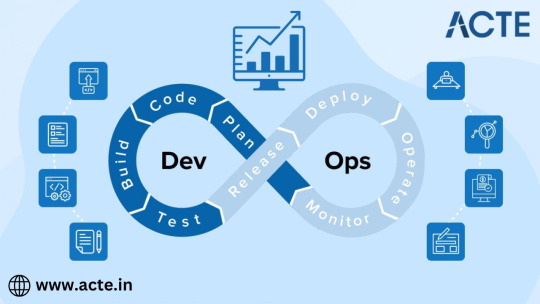
In this comprehensive guide, we'll explore the essential aspects of DevOps, including why it's a necessity in today's technology-driven world. We'll delve into the advantages and disadvantages of DevOps practices and their impact on businesses.
Why DevOps is a Necessity Today
In the fast-paced and dynamic world of technology, businesses can't afford the delays and bottlenecks that traditional software development and deployment processes often entail. DevOps emerges as the solution to this challenge, bridging the gap between the two historically distinct domains of software development and IT operations.
The need for DevOps is driven by several critical factors:
Agility: Modern businesses must respond swiftly to changing customer needs and market trends. DevOps practices empower organizations to deliver software faster and respond more effectively to shifts in the market.
Quality: Customer expectations are at an all-time high. High-quality software with minimal bugs and issues is not just a preference; it's an expectation. DevOps practices, such as continuous integration and continuous delivery (CI/CD), are designed to improve software quality.
Efficiency: The automation of repetitive tasks in the software development and deployment process leads to greater efficiency and reduced manual errors. This automation also cuts operational costs.
Collaboration: DevOps promotes cross-functional collaboration between traditionally siloed development and operations teams. It breaks down communication barriers and fosters a more efficient exchange of ideas and information.
Scalability: The ability to scale infrastructure and applications quickly and efficiently is crucial in a rapidly changing tech landscape. DevOps practices facilitate this scalability.
The Advantages of DevOps
DevOps offers a multitude of benefits, making it a compelling choice for businesses looking to streamline their software development and deployment processes.
Faster Delivery: One of the most significant advantages of DevOps is the acceleration of the development, testing, and deployment of software. This leads to a substantial reduction in time-to-market.
Improved Collaboration: DevOps eliminates the silos that traditionally separated development and operations teams. Enhanced collaboration and communication lead to more efficient workflows and processes.
Enhanced Quality: Continuous integration and continuous delivery practices in DevOps result in higher-quality software with fewer bugs and issues. This directly contributes to greater customer satisfaction.
Efficiency: Automation of repetitive tasks and processes improves efficiency, reduces manual errors, and cuts operational costs. The cost-effectiveness of DevOps is a significant advantage for organizations.
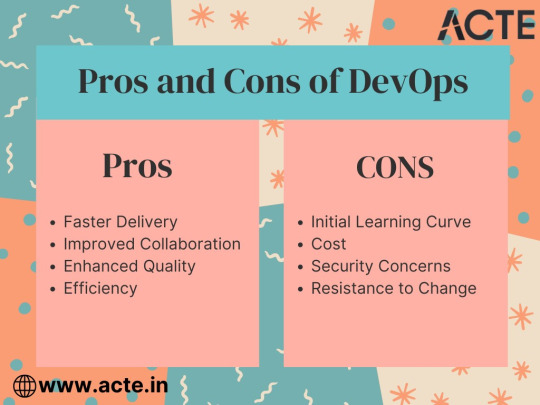
The Disadvantages of DevOps
While the advantages of DevOps are clear and compelling, it's essential to recognize that there are challenges and potential disadvantages associated with its adoption.
Initial Learning Curve: Implementing DevOps practices and tools can be challenging, particularly for teams and individuals who are accustomed to traditional software development and IT operations processes. There is a learning curve associated with the adoption of DevOps practices.
Cost: Setting up and maintaining DevOps practices and tools can be costly, especially for small businesses. The initial investment in infrastructure and training can be a barrier for some organizations.
Security Concerns: DevOps emphasizes speed and automation, which can sometimes come at the expense of security. While security is a fundamental aspect of DevOps, there may be concerns about the potential trade-offs between speed and security. Organizations must place a strong emphasis on security within their DevOps practices.
Resistance to Change: DevOps represents a cultural shift within organizations. Employees may resist changes to traditional ways of working, and there can be resistance to new processes and tools.
In conclusion, DevOps is not just a methodology; it's a necessity in today's tech-driven world. It offers numerous advantages, including faster delivery, improved collaboration, enhanced quality, efficiency, and scalability. While there are challenges associated with its adoption, the benefits of DevOps far outweigh the disadvantages.
If you're considering a career in DevOps, there's no better time to embark on this transformative journey. DevOps professionals are in high demand, and their expertise is instrumental in driving the success of modern businesses. To prepare for a successful career in DevOps, it's crucial to acquire the right skills and knowledge.
This is where ACTE Technologies comes into play. With their comprehensive training programs and expert guidance, you can gain the skills and hands-on experience needed to excel in the field of DevOps. Their courses are tailored to provide you with a deep understanding of DevOps practices, tools, and methodologies. Whether you're starting from scratch or looking to enhance your existing skills, ACTE Technologies is your trusted partner on the path to a rewarding DevOps career. Embrace the DevOps revolution and be at the forefront of software delivery transformation.
11 notes
·
View notes